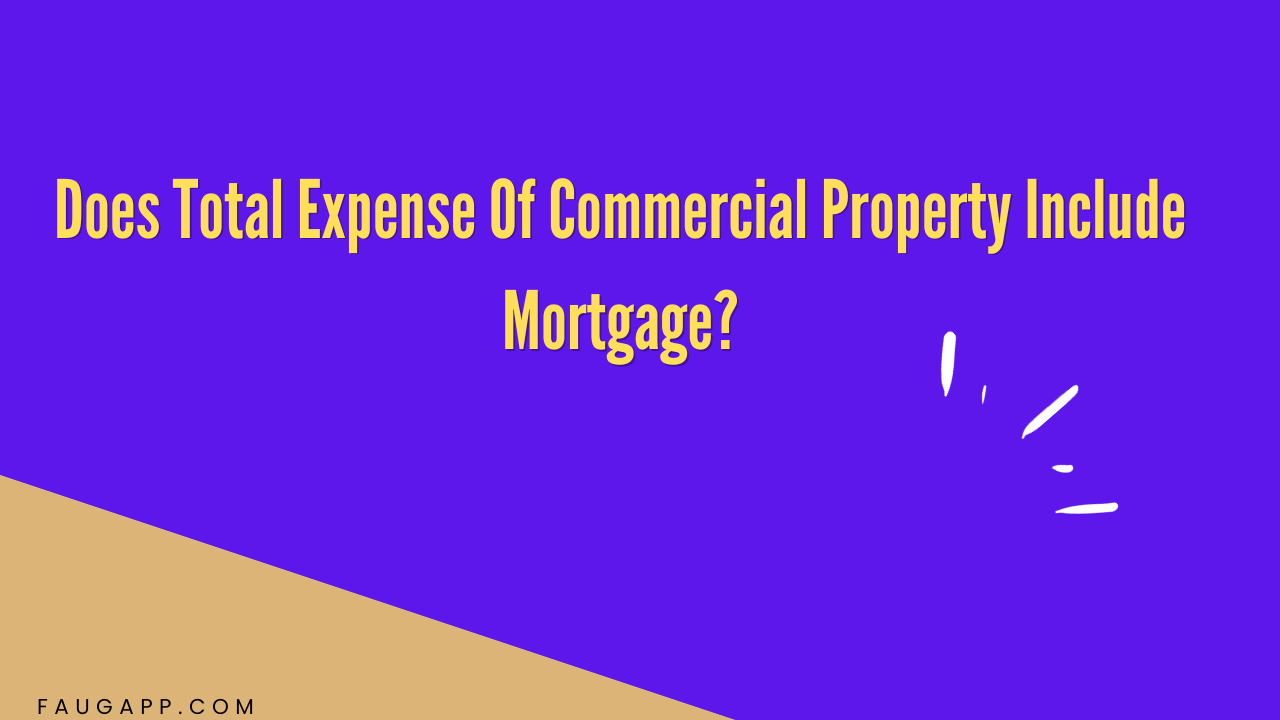In the world of commercial real estate, calculating the total expenses associated with owning and operating a property is a critical task. Potential investors, property owners, and real estate professionals often grapple with understanding what exactly comprises the total expense of a commercial property. One common question that arises in this context is whether the mortgage on the property should be factored into this equation.
In this comprehensive guide, we will delve into the concept of the total expense of commercial property and whether or not the mortgage should be considered a part of it. By the end of this article, you will have a clear understanding of how mortgages fit into the overall financial picture of owning commercial real estate.
Understanding Total Expense in Commercial Property
Before we dive into whether the mortgage should be included in the total expense of a commercial property, it’s crucial to grasp the concept of total expense itself. Total expense refers to the sum of all costs associated with owning, operating, and maintaining a commercial property over a specified period.
The Components of Total Expense
Total expense can be broken down into three primary components:
Operating Expenses
Operating expenses are the ongoing costs incurred in the day-to-day management and maintenance of a commercial property. These expenses include property management fees, utilities, insurance, property taxes, and repairs.
Capital Expenses
Capital expenses, often referred to as CapEx, are the costs associated with significant improvements, renovations, or replacements of assets within the property. These expenses are typically less frequent but can be substantial, such as replacing the roof or HVAC system.
Financing Costs
Financing costs are the expenses related to the financing of the property, primarily the mortgage interest and associated fees. This is where the question arises: should the mortgage be considered a part of the total expense?
Is the Mortgage a Part of the Total Expense?
The inclusion of the mortgage in the total expense calculation is a topic of debate among real estate professionals. There are arguments both in favor of and against considering the mortgage when determining the total cost of owning a commercial property.
The Argument for Including Mortgage
One perspective argues that the mortgage should be included in the total expense because it represents a significant financial obligation. By factoring in the mortgage, investors and property owners can gain a more accurate picture of their financial commitments. This approach provides a comprehensive view of the true cost of ownership.
The Argument Against Including Mortgage
On the other hand, some experts argue against including the mortgage in the total expense. They contend that the mortgage is a financing cost rather than an operational or maintenance expense. Excluding it can lead to a more accurate assessment of the property’s day-to-day financial health, allowing owners to focus on operational efficiency.
Calculating Total Expenses with Mortgage
For those who choose to include the mortgage in the total expense, the calculation is relatively straightforward. The mortgage payment, including both principal and interest, is added to the sum of operating expenses and capital expenses over a specific period, typically a year. This provides a comprehensive view of the total cost of owning and financing the property.
Strategies to Minimize Mortgage Impact
Whether you decide to include the mortgage in your total expense calculation or not, there are strategies to minimize its impact on your financial health as a property owner. These may include refinancing options, seeking lower interest rates, or exploring alternative financing methods.
Conclusion:
the question of whether the total expense of a commercial property should include the mortgage is not a one-size-fits-all answer. It depends on your specific financial goals, investment strategy, and how you prefer to assess the overall cost of property ownership.
Including the mortgage provides a holistic view of your financial commitments while excluding it allows for a clearer picture of day-to-day operational expenses. Whichever approach you choose, it’s essential to understand the implications and make informed decisions regarding your commercial property investments.
FAQs
Should I include the mortgage in the total expense calculation for my commercial property?
The decision to include the mortgage in your total expense calculation depends on your financial strategy. Including it offers a comprehensive view, while excluding it allows a focus on operational expenses.
Are there benefits to excluding the mortgage from the total expense?
Excluding the mortgage can provide a clearer picture of day-to-day operational expenses and may help in assessing the property’s financial health.
How can I minimize the impact of the mortgage on my commercial property investment?
To minimize the mortgage’s impact, consider options like refinancing, seeking lower interest rates, or exploring alternative financing methods.
What are the typical components of operating expenses for a commercial property?
Operating expenses typically include property management fees, utilities, insurance, property taxes, and maintenance and repair costs.
When should I consider capital expenses in the total expense calculation?
Capital expenses, such as major repairs or renovations, should be factored into the total expense over their estimated useful life, rather than on an annual basis.
